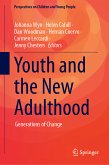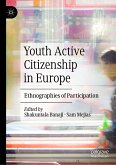Drawing on multi-site ethnographic field research, interviews, survey data, and online content analysis, the book examines the design and use of websites and content by and for LGBT+ youth. The book innovatively interrogates the design of transnational digital wellbeing initiatives, alongside the digital practices of those the technologies are designed for. It illustrates not only the (im)possibilities of technological design, but also the capacity for design to participate in what Hanckel calls '(trans)national digital wellbeing' processes. He asks us to consider the ways that global technologies are contextual-a paradox that is explored throughout the book.
The analysis extends important discussions in youth research, contributing to a greater understanding of how LGBT+ youth are engaging new technologies to participate in identity-making, health and wellbeing, as well as political action. It also considers implications for digital wellbeing and digital health promotion efforts globally with young people who experience marginalisation. In doing so the book makes a critical contribution to understanding the ways that transnational digital interventions get deployed and (at times) incorporated into youth practices.
Dieser Download kann aus rechtlichen Gründen nur mit Rechnungsadresse in A, B, BG, CY, CZ, D, DK, EW, E, FIN, F, GR, HR, H, IRL, I, LT, L, LR, M, NL, PL, P, R, S, SLO, SK ausgeliefert werden.









